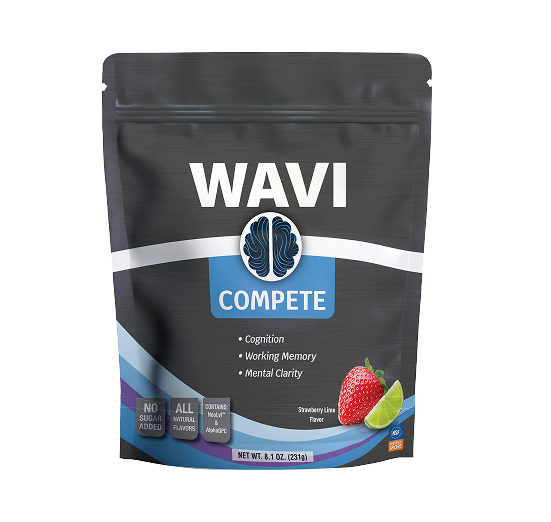The Science Behind Nootropics: How They Work in the Brain

When you think about nootropics, consider how they interact with your brain's chemistry. These substances influence neurotransmitters like dopamine and serotonin, which are critical for mood and cognition. By enhancing communication between neurons, they can potentially elevate your cognitive functions. But how exactly do they achieve this? Understanding the mechanisms behind these compounds could reveal more than just their benefits; it might change the way you approach mental performance altogether.
Understanding Nootropics: Definition and Types
Nootropics, often dubbed "smart drugs," are substances that enhance cognitive function, particularly in areas like memory, creativity, and motivation.
You'll find various types of nootropics, each with unique mechanisms. Some are natural, like herbal extracts such as Ginkgo biloba or Bacopa monnieri, while others are synthetic compounds like racetams.
These substances can be classified into categories based on their effects—cognitive enhancers, mood boosters, or neuroprotectants. Cognitive enhancers focus on improving attention and memory, whereas mood boosters target emotional well-being. Neuroprotectants aim to shield brain cells from damage.
Exploring these types helps you identify which nootropics align with your goals, whether you want to study more efficiently, tackle creative projects, or maintain mental clarity as you age.
The Role of Neurotransmitters in Cognitive Function
Understanding how nootropics affect cognitive function requires an appreciation of the brain's complex chemistry, particularly the role of neurotransmitters. These chemical messengers transmit signals between neurons, influencing everything from mood to memory.
For example, dopamine plays a crucial role in motivation and reward, while serotonin impacts mood regulation. Acetylcholine is essential for learning and memory, and glutamate is vital for synaptic plasticity, enabling new connections.
When neurotransmitter levels are balanced, cognitive functions operate smoothly. However, imbalances can lead to cognitive decline or mental fatigue.
How Nootropics Enhance Neurotransmitter Activity
While exploring how nootropics enhance cognitive function, you'll find that these compounds often target neurotransmitter activity directly.
They can increase the levels of key neurotransmitters like dopamine, serotonin, and acetylcholine, which play crucial roles in mood, focus, and memory. For instance, some nootropics boost acetylcholine, enhancing memory and learning capabilities.
Others might inhibit the breakdown of dopamine, leading to improved motivation and cognitive performance. By modulating these chemicals, nootropics create a more favorable environment for brain function.
You'll notice that the right nootropic can sharpen your focus, elevate your mood, and improve mental clarity. This targeted action on neurotransmitters is what makes nootropics a popular choice for those seeking enhanced cognitive abilities.
Promoting Neuroplasticity: The Brain's Adaptability
The brain's remarkable adaptability, known as neuroplasticity, allows it to reorganize itself by forming new neural connections throughout life. This dynamic process enables you to learn new skills, recover from injuries, and adapt to changing environments.
When you engage in challenging tasks or practice mindfulness, you're actively promoting neuroplasticity. Nootropics can enhance this process by increasing the production of growth factors and enhancing synaptic plasticity.
Nootropics and Brain Metabolism: Fueling Cognitive Processes
Nootropics play a crucial role in enhancing brain metabolism, which fuels your cognitive processes and overall mental performance. By increasing energy production in brain cells, these substances help optimize the use of glucose and oxygen, creating a more efficient environment for thinking and learning.
When your brain's metabolic pathways are functioning well, you'll likely experience improved focus, memory retention, and information processing. Many nootropics also support neurotransmitter synthesis, ensuring that your brain can communicate effectively.
As a result, you might find yourself feeling more alert and mentally agile. Ultimately, by improving brain metabolism, nootropics offer you the potential to elevate your cognitive abilities, making it easier to tackle complex tasks and retain new information.
Natural vs. Synthetic Nootropics: A Comparative Overview
Understanding brain metabolism sets the stage for exploring the two main categories of nootropics: natural and synthetic.
Natural nootropics, like herbal supplements and nutrients, often come from plants and foods you might already consume. They typically support cognitive function gently, making them a popular choice for those seeking a holistic approach.
On the other hand, synthetic nootropics are man-made compounds designed to enhance specific cognitive functions more aggressively. They can provide rapid effects but may involve more complex mechanisms and potential side effects.
When choosing between the two, consider your goals, tolerance for side effects, and whether you prefer a more gradual or immediate cognitive boost. Each category has its pros and cons, making your decision an important aspect of your cognitive enhancement journey.
The Safety and Efficacy of Nootropic Use
While you might be eager to experience the benefits of nootropics, it's crucial to consider their safety and efficacy. Many nootropics, especially synthetic ones, can come with side effects, ranging from mild to severe.
It's essential to research each substance thoroughly and consult with a healthcare professional before starting any regimen. Natural nootropics often present fewer risks, but they aren't entirely without potential downsides.
Efficacy varies significantly among individuals; what works wonders for one person mightn't have the same effect on you. Start with low doses to assess your response, and monitor any changes in mood or cognition.
Prioritizing your health ensures that your pursuit of enhanced mental performance remains safe and beneficial.
The Impact of Nootropics on Memory and Learning
As you explore the potential of nootropics, you'll find that their effects on memory and learning can be quite significant.
These cognitive enhancers often work by increasing the availability of neurotransmitters, like acetylcholine, which plays a crucial role in memory formation and retention.
By enhancing synaptic plasticity, nootropics can help you create stronger connections between neurons, making it easier to learn new information.
Some nootropics also promote neurogenesis, encouraging the growth of new brain cells, which can further support both memory and learning processes.
When used responsibly, nootropics may improve your ability to recall information, grasp complex concepts, and ultimately boost your overall cognitive performance, giving you an edge in both academic and professional settings.
Nootropics and Focus: Boosting Attention and Concentration
When you're looking to enhance your focus and concentration, nootropics can be a game-changer. These cognitive enhancers work by modulating neurotransmitters in your brain, particularly those linked to attention and alertness.
For instance, compounds like caffeine boost dopamine levels, helping you stay engaged and attentive. Other nootropics, like L-theanine, promote a calm focus, reducing anxiety while keeping your mind sharp.
It is common for certain nootropics to help you maintain sustained attention during long tasks, making them ideal for studying or working. Additionally, they can improve mental clarity, enabling you to process information faster.
Future Directions in Nootropic Research and Development
The landscape of nootropic research is evolving rapidly, driven by advances in neuroscience and a growing interest in cognitive enhancement.
You'll see researchers exploring novel compounds, including natural and synthetic options, to better understand their mechanisms and effects.
There's also a strong push towards personalized nootropic solutions, where genetic and lifestyle factors inform tailored recommendations. This could lead to more effective and safer products.
Moreover, advancements in neuroimaging techniques will help visualize how these substances impact brain activity in real time.
As regulatory frameworks tighten, expect a surge in clinical trials that rigorously assess efficacy and safety.
Your awareness and understanding of these developments can empower you to make informed decisions about cognitive enhancement in the future.
Conclusion
In conclusion, nootropics hold exciting potential for enhancing cognitive functions by targeting neurotransmitters and promoting neuroplasticity. By improving communication between neurons and boosting brain metabolism, these substances can help you sharpen your focus, memory, and learning abilities. As research continues to evolve, you might discover even more benefits and safer options to support your cognitive health. Embracing the science behind nootropics could be your next step toward unlocking your brain's full potential.




